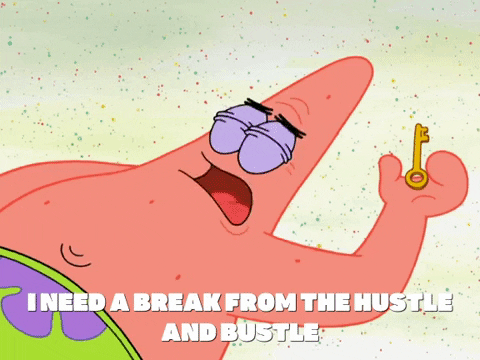How to Deal with Suicidal Thoughts in Recovery

Alcohol is a depressant that people use to cheer themselves up. Socially sanctioned and easily available, yet worldwide, 2.8 million people die alcohol-related deaths every year.
Some demand to be allowed to overindulge. Some drink themselves to death. Some would rather die than live without it.
The contradictions inherent in discussions of alcohol speak to the power it holds over us, culturally.
The good days in recovery are a breeze. But how do you deal with the terrible days? As my fellow writer, Gillian May frequently states mental health and addiction issues often go hand in hand so cutting your self-prescribed medicine can be painful.
Here’s how I have learned to outwit my scariest moods without turning to alcohol. And I believe you can switch booze out for your drug or behaviour of choice here.
Suicide ideation
When I drank, suicide ideation was rampant. Hangovers amplified my mental distress until it was so loud I dreamed of an off switch.
The sad fact is that alcohol and suicide are inextricably linked. Depressed people are more likely to drink, and drunk people are more likely to commit suicide. The danger here is very real, and something that needs to be taken seriously. When I finally talked about my suicidal thoughts, a friend pushed me to make an appointment with the doctor. It was the beginning of a new way of life for me.
Five years sober, suicide ideation is much less common for me. More, importantly, it doesn’t alarm me anymore. I have learned to understand it, and so I can cope better when it comes. For me, suicide ideation is a darkly comforting daydream I fall into when overwhelmed. I have learned it can be common with masking autism, which I only realised recently that I do a lot.
But as life progresses, and my understanding of how to take care of myself improves, I need to reach for this upsetting coping strategy less and less.
Suicide ideation is me trying to get my own attention. I am asking myself for help. And so I try to be very gentle with myself.
Lately, I have learned the power of reparenting, and to ask myself three questions:
What are you wanting?
What are you needing?
How do you feel?
These unsettling thoughts are evidence that I’m neglecting myself and not taking my needs seriously. I’m not speaking up or telling my truth. No wonder my mind wishes for escape in these cases: it needs a flipping break!
Talk to someone you trust
If you are experiencing suicidal ideation in your recovery — whether from addiction or anything else you need help to overcome — tell somebody. In the past, I kept these thoughts to myself and they only increased in power.
When the dark thoughts come now, I tell the friends who understand. They remind me that these feelings will pass, and ask what I need. I feel the tiniest light sliver into the darkness.
Name, acknowledge and allow the feelings
Can you connect the dark feelings to the events that caused them? Work on understanding your own story and developing your emotional literacy. 12 step fellowships and other support groups can help with this if you can’t afford/don’t like therapy.
Use a feelings wheel to name what you are feeling because naming feelings helps them to move through you. This is what we mean when we talk about processing.
If you use alcohol to numb or distract yourself from painful feelings you will miss the guidance they are giving you about the actions you should take. This is the purpose of emotions. They are here to communicate with you. When you honor them, respond to them lovingly, they shift. This is why alcohol is so damaging for our emotional health: it keeps us blocked. Numbing our emotions without responding to them.
Progress not perfection
I hope, in future, to be able to say I no longer have suicidal thoughts. Until then I am working on taking care of myself. No more criticizing myself for being weak or immature, or selfish. No more pushing myself, in spite of how I feel, instead, when the dark feelings arise I lower my expectations of myself and be as kind and nurturing as I would to my dearest pals.
Self-compassion + self-compassion = peace (or thereabouts).
If you relate, be gentle with yourself. Rest. Release some of the pressure. What can you let go of? What would you say to a friend who felt this way? Work towards countering every shaming or toxic thought with defiant gentleness and encouragement.
Life is beautiful and painful
Recovery is challenging because life is challenging. So don’t be disappointed if you continue to struggle with suicide ideation long after you get sober. Keep prioritising your health, and things will get better. Don’t be fooled into thinking that your life drinking was better.
Remember that hangovers are challenging too. Spending money on alcohol you no longer want to drink is extremely challenging. Disliking yourself because of how you acted in your drunkenness is the worst. Wasting years of your life because of an unhelpful habit is devastating.
Recovery means doing the hard work of making a life that suits you, that you feel enthusiastic about living. Despite all the struggles you’ve faced. Despite all the heartbreak. Recovery means facing reality - who you are, where you come from, the nature of reality - and learning to accept it, seeing where you can be useful. This is your life’s work.
So please keep going. Practice using the new tools you are discovering in place of alcohol: self-compassion, affirmations, talking about what’s really going on with you, and remember that Bad Days pass, so long as you let them.
Alcohol keeps you stuck in the same unhelpful patterns. Recovery from alcohol issues allows you to move forward and grow. Life is still challenging, but you are no longer setting so many traps for yourself, and in my experience, this has made all the difference.
If you are feeling suicidal, help is available.
Is anyone else tormented by suicidal thoughts in recovery? How do you navigate them? How do you take care of yourself when they strike? What are they trying to tell you?
If you appreciate my work, and believe writers should get paid, consider signing up for a paid subscription. Early adopters get a discount!
And if you can’t afford to pay, but want to help because you have grown to love me (oh my god I love you too!) then share this with friends who might appreciate it.
If you need help to be okay, you’re not alone.
If you’re ready to try something different, read beautiful hangover and discover what I did to get freedom from alcohol. Do whatever it takes to stay sober for 30 days: go to your doctor, try Smart or AA or Hip Sobriety or Soberistas.
Listen to Recovery Elevator and SHAIR podcasts. Read This Naked Mind. Try Moderation Management.
There is a whole community of people waiting to help you. Reach out. Something better is waiting.
Sign up for more from me at beautifulhangover ❤
Chelsey Flood is the author of Infinite Sky and Nightwanderers, and a lecturer in creative writing at Falmouth University. She writes about freedom, addiction, nature and love, and is working on a non-fiction book about getting sober, and a new YA novel.
She also writes and draws Polite Robot an illustrated newsletter about autism.




